Don't Get Bogged on Fraser Island!
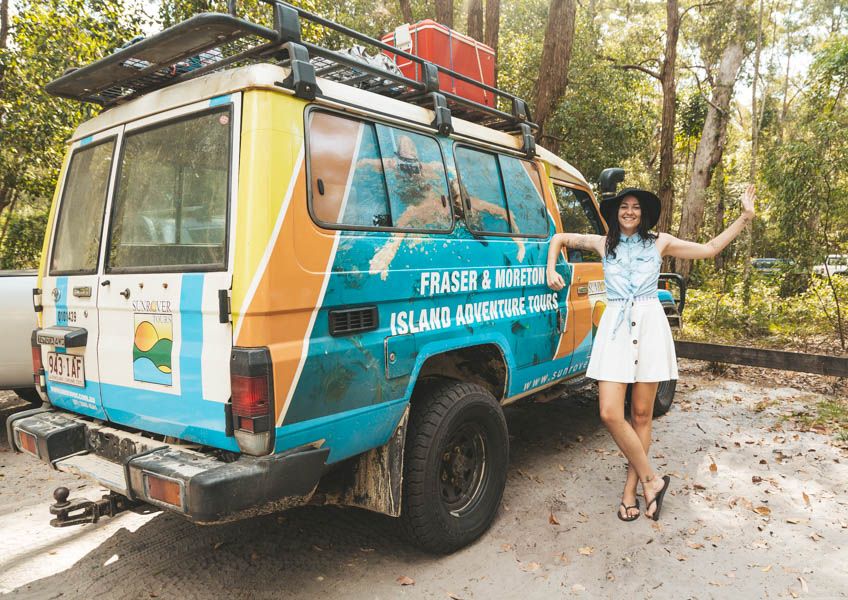
Ah K’Gari… The largest sand island in the world, also known as Fraser Island, is a 4 wheel driver’s dream - But it can quickly turn into a nightmare if you find yourself knee-deep in the soft or soggy sand! It’s more common than you think to get stuck if you don’t take precaution-even seaplanes can get caught out! Whether you’re hiring a 4WD (or taking your own vehicle) to explore Fraser Island on your own, or joining a tag-along convoy tour, there are plenty of things to consider before starting your adventure on the island.
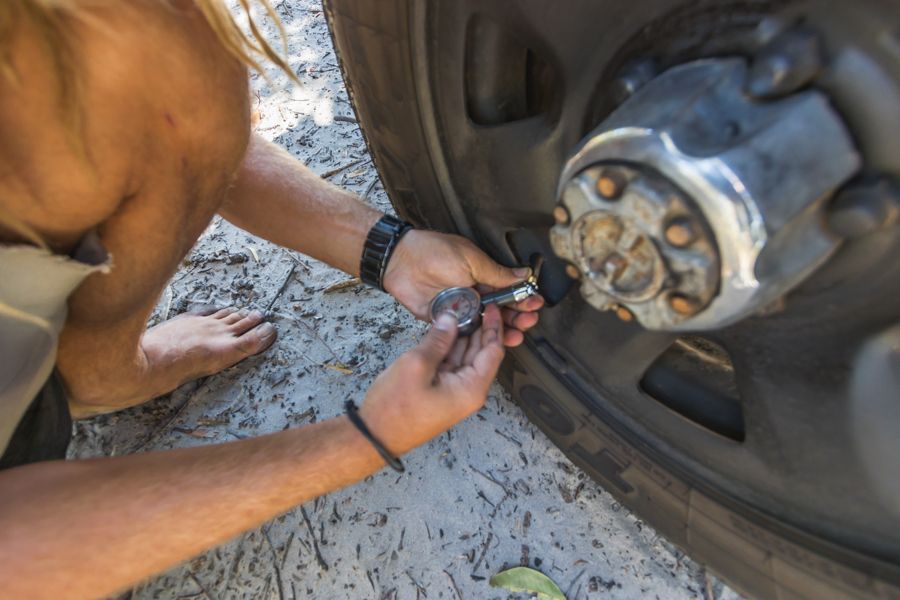
Tyre pressure is key
Once you hit the sand, (in addition to engaging 4WD) it’s important to lower your tyre pressure so your wheels can spread more widely and evenly in order to grip the sand better. The recommended tyre pressure is 25psi, however in particularly soft spots (Inskip point is a killer) experts recommend lowering your pressure as low as 15-17psi. Use your judgement on the day, and if in doubt, play around with different pressures until you feel you have more traction. Most hire companies will include a pressure gauge in the vehicle and tag-along tour guides definitely keep them handy, so make sure you pack one if you are self-driving your own vehicle to the island.
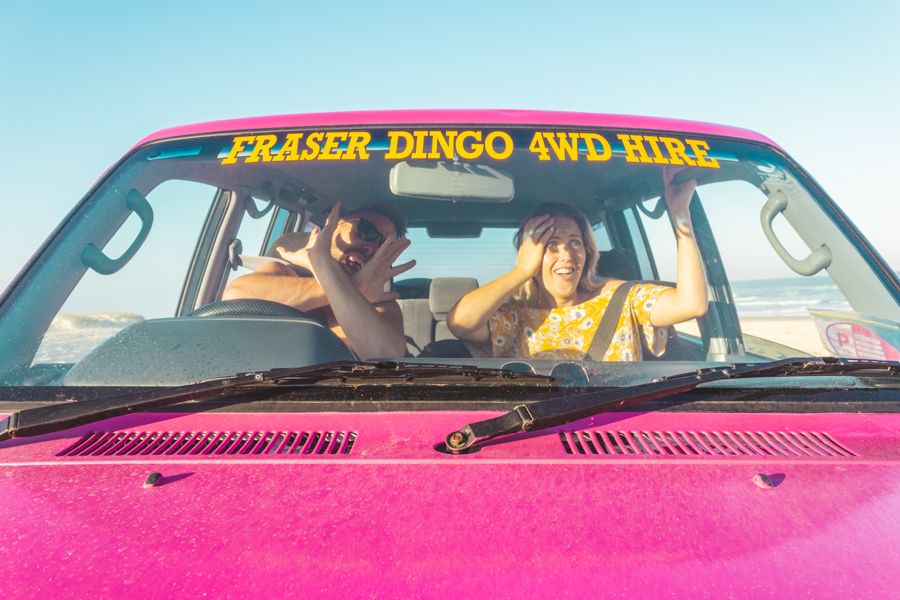
Cool your engines
As the saying goes, slow and steady wins the race. While you certainly don’t want to be 'gunning' it around the island (especially on the inland tracks where the sand is usually the softest) you don’t want to go so slow you lose momentum. The speed limits around the island are a good indication of what a safe speed is, and they’ve taken into consideration driving conditions on the sand. The easiest way to bury yourself in the sand is to put the pedal to the metal, which will cause your tyres to spin out digging you deeper and deeper until you need a tow.
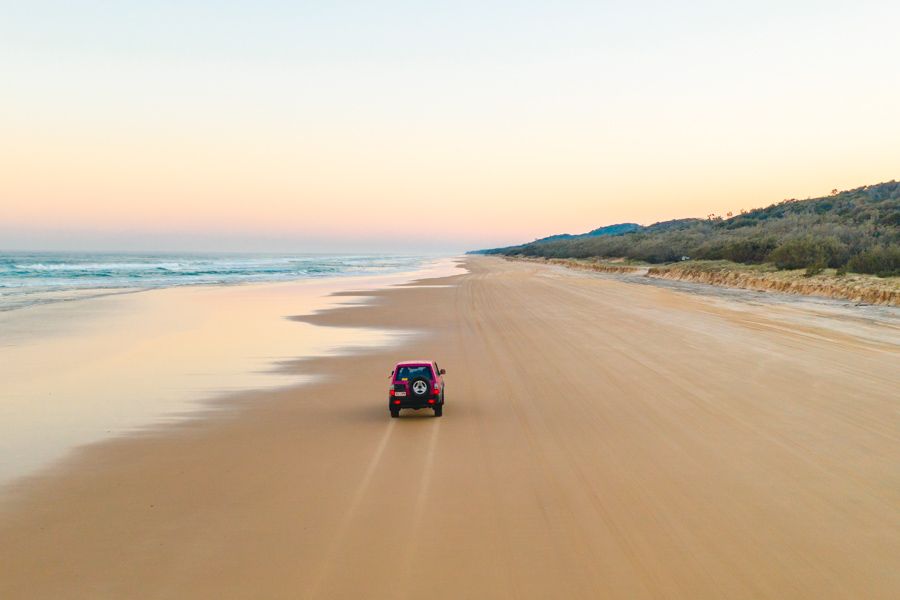
Dry tyres are happy tyres
75 Mile Beach is a beauty to drive on, however, it’s vital to keep well away from the shoreline as low tide can inevitably mean soft wet sand. Most 4WD hire companies have strict policies about not driving through water for this reason. Wet sand can be deceiving, and pockets of water trapped further up the tide line can be concealed by the glare of the sun, so best to steer clear of the waterline as much as possible. For this reason, you should always check the tide times before heading up the eastern side of the island, as certain places like Yidney Rocks are impassable during high tide. Phone service is not Fraser’s strong suit, so taking a tide times chart or downloading one before you go will come in handy.
Use gravity to your advantage
For the most part, Fraser Island is pretty flat, especially the eastern shoreline where 75 Mile Beach lies, however, there are still hills throughout the softer middle inland tracks. Where possible, use the momentum of going downhill to your advantage, and let inertia propel you as you go uphill in a straight fashion. Giving vehicles in front of you plenty of space will prove useful in these instances! When parking your vehicle, downhill will prove useful when starting back up again, so always try to find an incline to park on with the front of the vehicle facing downhill.

Don’t brake it if you want to make it
Much like driving in snow, brakes can be your worst enemy when trying to keep traction on soft sand. Obviously, if there is a need to stop abruptly to avoid a collision this is unavoidable, but the general rule should be to roll to a stop where possible so as not to anchor your tyres deep into the sand. Taking corners slowly is also worth mentioning, as you don’t want to roll your vehicle!

Do as the locals do
You’ll notice straight away when arriving at Inskip Point who is a Fraser local and who isn’t, and some of the best tips for traversing the sand can be from watching how they drive. The Fraser locals are extremely friendly and always happy to offer advice if you’re nervous about sand driving, so don’t hesitate to ask! Driving on tracks already carved into the sand is also advisable, so make sure you follow their lead when getting on and off the island. Trying to remain in the tracks will also come in handy inland on the softer sand.
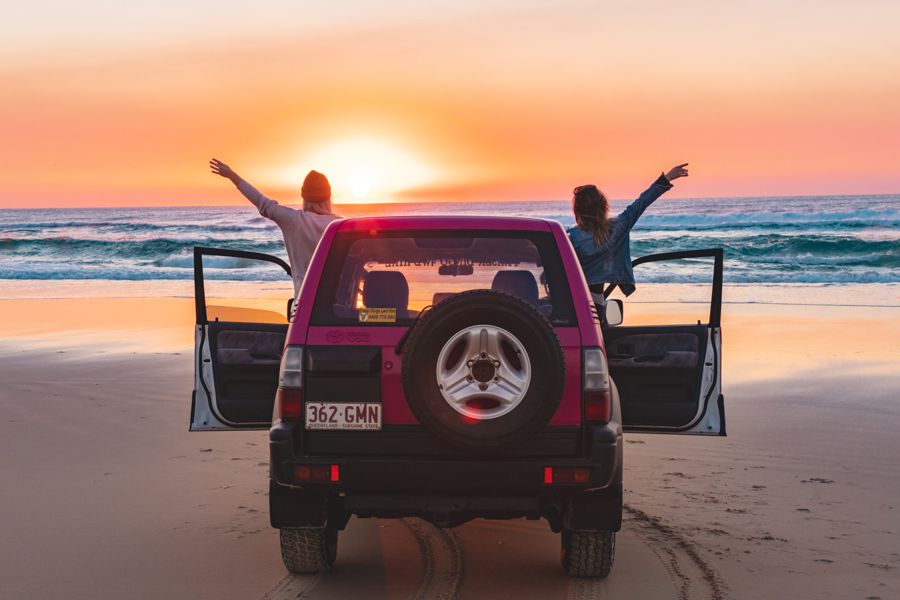
This should get you well on your way to becoming a pro at sand driving! Remember to always keep a recovery kit in your vehicle in case you do get bogged, but don’t stress too much if you do-There is usually always someone around to help! Above all, don’t forget to enjoy the ride- Visiting Fraser Island is one of the most incredible experiences to have in Australia!
To read more about safe driving tips, click here.













